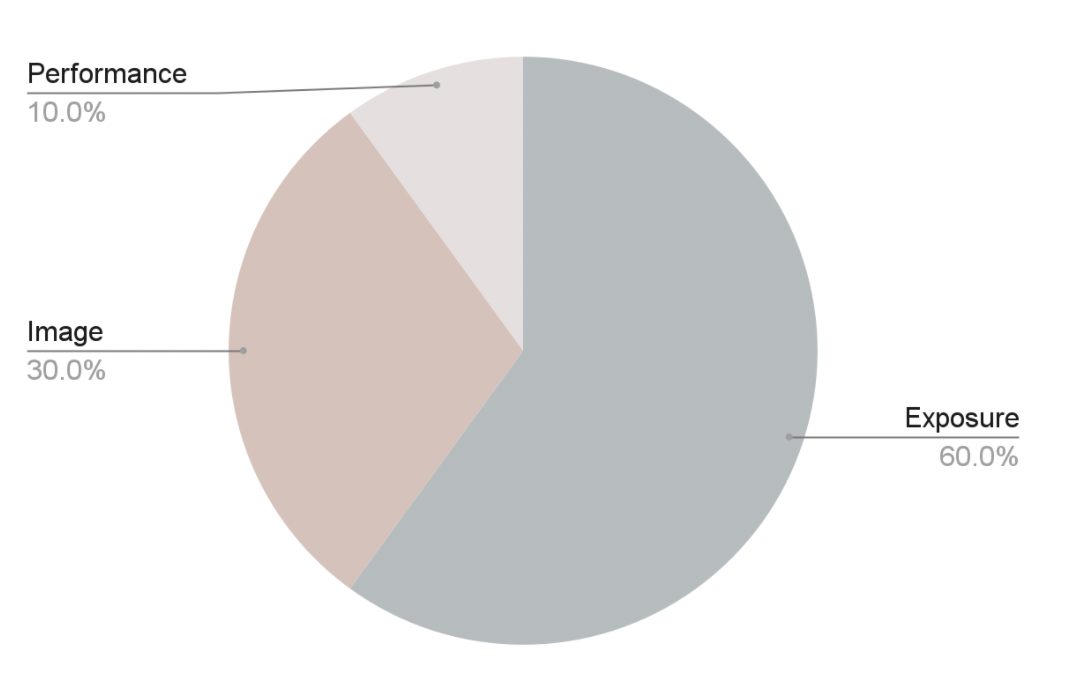Perception: A tool to Mindfully manage your Work Life
Jan 18, 2022
Our goal at Mindfulness Incubator is to share practical tools, insights and tips to help you live with more space and intention. Today’s post focuses on helping you manage your work life.
Many professionals assume that the key to success is to put your head down and do good work. That greater effort, and greater output will result in progression, promotion, or greater compensation.
It’s hard to balance our work lives, personal lives, interests and obligations.
With burn out and overwhelm on the rise, it’s pretty clear that just putting in more effort isn’t the answer. That’s why today’s blog is focused on an important facet of work life management: Perception.
Why perception matters
“Perception is the copilot to reality” - Carla Harris
Doing exceptional work, growing your skills and competence are essential. They are the foundation. But alone, it’s often not enough to build a successful career.
A few years ago, this video from Carla Harris inspired a new understanding of how perception can shape our careers.
Carla is an Investment Banker with Morgan Stanley. She’s a trailblazer and a compelling speaker. This short twenty minute video from 2014 is succinct and illuminating. Highly recommend watching all of it, but in a pinch skip to 10:58 to about 17:30 where she speaks of the Perception Pearl. These six and a half minutes could very well change how you think about your career.
In the Perception Pearl, Carla points out that throughout your career, decisions will be made about you when you’re not in the room. Decisions about your compensation, your potential, your capabilities, your progression. And it is crucial for you to understand the adjectives that are valued in the seat you are in, or the seat you want to be in.
How do people talk about you when you’re not in the room?
For some, it can feel disingenuous to actively manage the perception of their work. Shouldn’t it speak for itself?
Why paying attention to perception matters
Recently this graph circulated. It’s inspired by Harvey Coleman’s Model, and argues that when it comes to promotion decisions, performance accounts for only 10%. Image and Exposure make up the remainder.

Source: Harvey Coleman Model, summarized in this article from ArrowHead Consulting
In an online discussion about the topic, many chimed in that while they didn't necessarily agree with the percentages, the premise that how you’re perceived, and who has exposure to your work mattered as much (or more) than your actual performance.
In Carla’s pearls of wisdom, she encourages us to understand the attributes that our organizations value. Speaking and acting in a way that demonstrates those attributes consistently, over time, can open up new opportunities.
Paying attention to perception matters especially when it comes to promotions. Managers are usually responsible for determining who will be recommended. Self-nominations are pretty unusual. Decisions almost always happen when you’re not in the room. When evaluating whether someone is ready, it’s not just about performance in the current role, but whether the attributes necessary at the next level are present.
This means that to access progression opportunities, you need to:
- Know which attributes your organization values
- Find opportunities to demonstrate that you possess those attributes consistently, over time
- Have decision makers notice that you possess those attributes
Know what attributes your organization values
Does your organization have job profiles or attribute grids? When they exist, they’re a great place to start. But you also have to understand what they mean. Have a conversation with a manager or trusted mentor who’s engaged in performance evaluation and promotion decisions, and ask questions like:
- What experiences help demonstrate that someone is ready for the next level in a role like mine?
- What accomplishments are usually indicators that a person is ready to progress to greater levels of responsibility?
- What attributes do you see as most important to be successful at the next level?
- What evidence do you look for that gives you confidence that these attributes are present?
Explore how you can demonstrate those attributes
Once you better understand what attributes and experiences your organization values, explore how you might demonstrate them consistently. Ask yourself (or a trusted colleague or mentor):
- Where are there opportunities for me to shift my responsibilities in my core role to demonstrate the experience or accomplishments that are valued?
- What opportunities might I have to take on additional projects or responsibilities (like participating in employee resource groups, peer programs, nonprofit work, mentorship programs, etc.) to build that experience?
- What opportunities might I have in my current role to demonstrate those attributes more consistently?
- What support might be available to help me cultivate those skills and attributes? (for example coaching, mentorship, training)
When the time comes for a stretch opportunity, a promotion, or a performance conversation, how can you ensure that it will be an easy choice to recognize and reward you?

Make it easy for people to promote your work
In most cases, a manager cannot be involved in the work of every team member. There is simply too much to be engaged in all of it. If a manager can easily misjudge the scale, complexity and impact of the work being done, imagine those further removed who also weigh in on performance and promotion conversations. It’s a common pitfall to assume that everyone knows how hard you’re working, how much you’re growing, and how amazing your work is.
You can combat this by making it as easy as possible for those around you to be aware of your work, and to share it. Take the work out of it by creating concise talking points that outline your accomplishments, and that convey the scope and complexity they entailed. Consider sending regular email updates when project milestones are hit. Communicate the problems you’re solving and the impact you’re having, and make it easy for your leader to share these wins as well.
Invest in building your connections
“You need to work on your visibility” - feedback from a manager, to almost every employee at some point
As the Harvey Coleman model suggests, exposure is important.
Say you’re doing awesome work, but no one knows who you are, what it is, and why it matters. How likely do you think you are to be recognized for it? It’s certainly not impossible, but it is definitely improbable.
When decisions are being made about your career, who is in the room? How well do they understand your work?
The great news is, there are many opportunities for you to act on your visibility, for example:
- Pitch to present your work at an all-hands or team meeting. Boost your odds by sharing why it’s relevant for your colleagues: How will they benefit? What value will it add?
- Regularly share executive level summaries that highlight your work and its importance. If you’re not sure what this would look like, ask your manager what they find helpful to share with their leadership, or past examples that they’ve seen circulating.
- Contribute to information sharing and skill building by running a knowledge sharing or training session for your colleagues.
- Volunteer to lead, or participate in high priority/high visibility projects within your department. Take these opportunities to cultivate your relationships and demonstrate your capabilities.
- Become a point of contact or liaison for another team or department to foster greater collaboration.
- Expand your network by engaging with cross-functional efforts. These might be outside your core job, like company-wide efforts, culture initiatives, or employee resource groups.
Taking charge of your perception is an act of self love
So many professionals feel like they don’t have enough time in a day. There are more demands competing for their time than their available capacity, at work and at home.
How can you expand your career and your impact? How can you do this when you’re already giving as much time and energy as you can?
The Harvey Coleman model, and the experience of seasoned professionals like Carla Harris, suggest that working harder, or more in the same way isn’t the answer. Rather, focus on perception and visibility. Invest some of your effort into ensuring your hard work is understood and acknowledged.
Want a nudge to be more mindful? Grab the Mindful in 5 Phone Wallpaper!
Never miss a post!
Get notified anytime we have something new.
We hate SPAM. We will never sell your information, for any reason.


